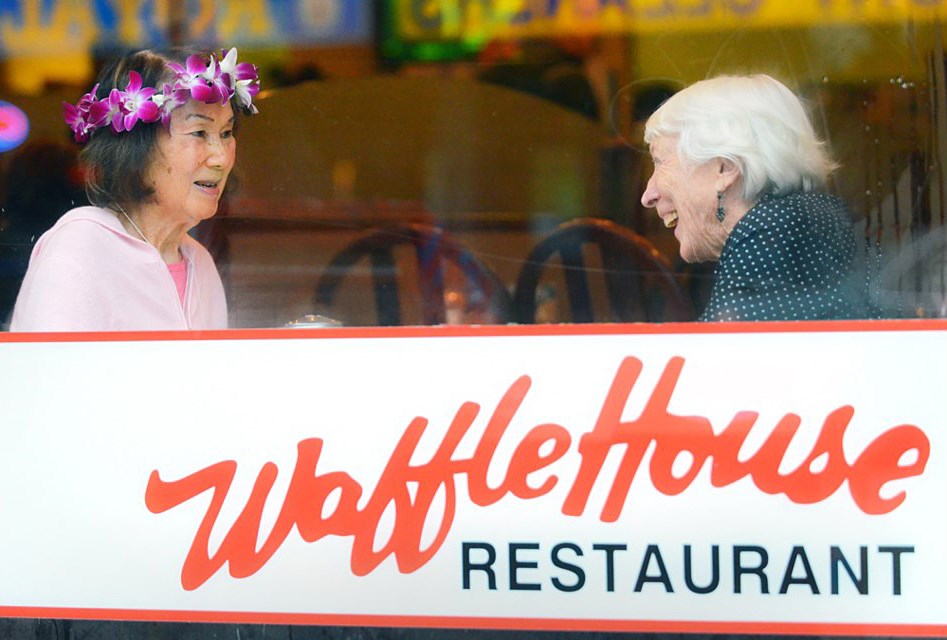When the name appeared on my phone this week, I knew what was coming – and dreaded it.
The first time Grace Yip called me four years ago it was to invite me to her sister’s 90th birthday party at New Wesminster’s Waffle House.
Souie "Susan" Chew had founded the iconic uptown eatery 60 years earlier as a single, free-spirited entrepreneur.
I didn’t know it at the time, but the invitation to her surprise birthday party would also be an invitation into an extraordinary life.
That life ended on Sunday.
Chew died at the age of 94 after a fall outside of Mount Saint Joseph’s Hospital two weeks earlier, according to her sister.
Chew was born on Feb. 1, 1927, the eighth of 11 children born to Chinese immigrant parents, who owned a farm in Saanich.
It was after she left that farm at age 20 that she first took over the Handy Fruit Mart in New Westminster and then opened the Waffle House at the corner of Sixth and Sixth in 1955.
The restaurant is still around today, 66 years later, at 636 Sixth St.
In the 1950s, it was a regular hangout for local radio and newspaper reporters, and Chew herself became the subject of a national news story when she and a roommate were refused a suite at a new apartment building because she was Chinese.
(The Record retold that story in an award-winning two-part series in 2017.)
During her lifetime, though, Chew was more than a restaurateur: she was a Cub Scout leader, world traveller, model, singer, professional hula dancer, painter, fashion boutique owner, travel agent, social columnist, Toastmaster, Realtor, disc jockey, creator of giant paper flowers, blogger, Mahjong enthusiast, movie extra and more.
I only learned this week that she had had a bit part in the 1983 classic holiday movie A Christmas Story.
Remember the racist Chinese restaurant scene? That’s Chew bringing in the roast duck.
(Even into her 90s she was still getting yearly residual cheques for the role, according to her blog.)
A couple of other details Chew and I hadn’t managed to cover during our hours of conversation four years ago was that she was also responsible for introducing the mini-skirt to the city of Toronto in the 1960s, according to her sister, and was commissioned by the federal government to create 367 giant crepe paper flowers for the Canadian pavilion at Expo ’70 in Osaka Japan.
Chew left New West for Toronto in 1963. She retired in Vancouver in 2009 to be closer to family.
She lived in her own Oakridge apartment until her death.
When I was writing my story about Chew’s brush with racism in the Royal City, I asked her sister if it was normal in the 1940s – before the women’s rights movement of the 1960s or even the repeal of Canada’s infamous Chinese Exclusion Act in 1947 – for a young, single, Chinese-Canadian woman to launch her own independent business ventures.
“No, that was just Susie,” Yip had said with a laugh. “She did all these kind of things that regular people didn’t have the initiative to do.”
Chew was predeceased by five sisters and three brothers, and survived by two sisters and 115 nieces, nephews, great-nieces and nephews, and great-great-nieces and nephews.
By request, there will be only a small, private family gathering to mark her passing.
“She just was amazing; that’s all. Everybody loved Susan,” Yip said.



